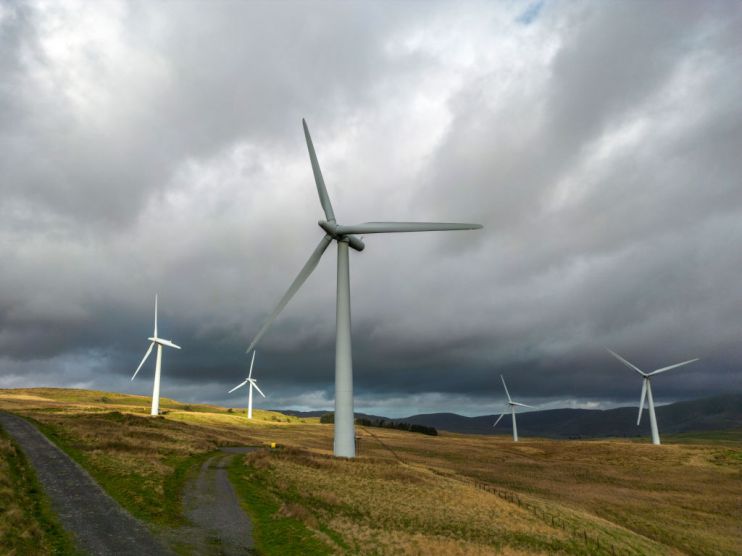Sunak’s onshore wind U-turn not enough to lure investment, trade body warns

Proposals to lift onshore wind out of a de-facto moratorium are unlikely to boost private investment in the sector, trade association Renewable UK has warned.
The warning comes in response to reports that Conservative MP Alok Sharma is planning to put forward an amendment to the Energy Bill, which would prevent onshore wind projects from being vetoed by a tiny minority of residents.
The move represents a U-turn from Prime Minister Rishi Sunak who first opposed onshore wind developments last summer in his leadership bid.
However, Renewable UK has raised concerns over a clause in Sharma’s proposals to prevent developers from appealing project rejections.
If enacted, the group warned this would turn future proposals into a one-shot opportunity for companies, raising the risk of spending time and capital financing potential projects that could be kiboshed by local opposition.
James Robottom, head of onshore wind told City A.M.: “The feedback we have had from our members is that if the amendment passes, it’s not going to do anything to encourage investment because the development expenditure risk is so high. While one person can’t block projects anymore, you now only have one shot.”
The government is thrashing out the final wording of the proposals, with ministers set to put forward the changes to the Energy Bill this week, The Daily Telegraph reported.
The bill will be presented for its third reading in parliament tomorrow.
Sharma’s proposals have wide support among backbench MPs – including former Prime Minister Liz Truss – alongside the backing of the Labour Party, which has pledged to ramp up onshore wind developments if it wins the next election.
Onshore wind contributes over 14GW to the UK’s supply mix, but developments have stalled since 2015 after former Prime Minister David Cameron brought in changes allowing for minority vetoes, and required all projects to be put on council designated land.
These changes meant just two onshore turbines were built in England last year, which was not just considerably less than the US, China and many European nations, but also less than in war-torn Ukraine.
A government spokesperson said: “We support the development of onshore wind where there is local support, recognising it as an efficient, low cost and a widely supported source of energy, while being a key part of helping reduce the UK’s reliance on importing expensive, foreign fossil fuels.
“We consulted on changes to national planning policy that could give local authorities more flexibility to respond to the views of their communities, and to demonstrate their support for areas suitable for onshore wind proposals.”